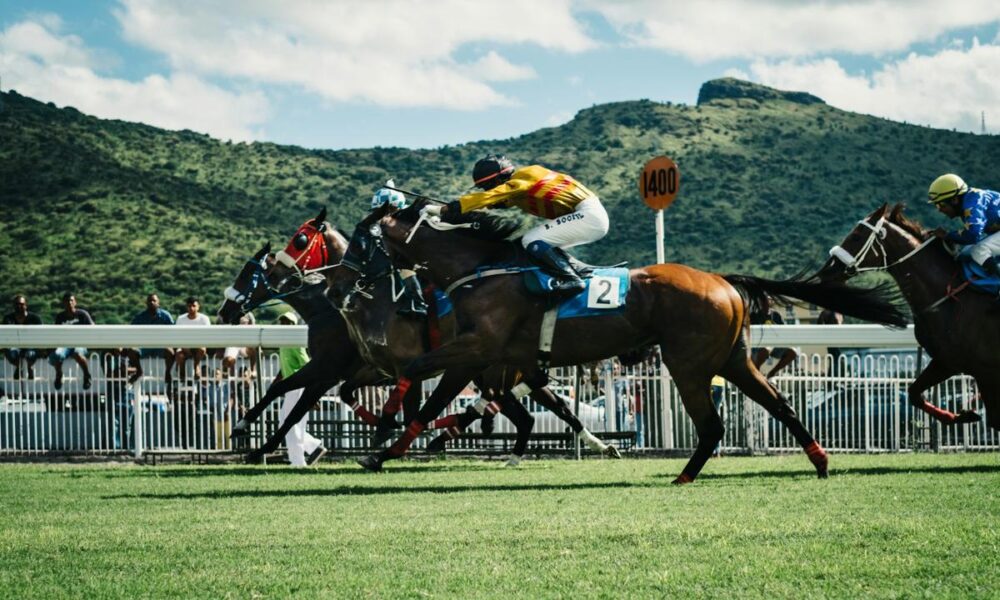There are few more strict athletes on the planet than horse racing jockeys, with athletes having to remain at their peak levels of fitness throughout the season to ensure that they are able to make weight for competitive rides.
Therefore, there could be few more popular diets to follow for those looking to lead an active and healthy life than the diet of a professional jockey.
However, for the most part, regular people may have to change some components to ensure that they still have a healthy BMI. But, what are some of the tips that jockeys live by in terms of fitness and health?
Why Is Maintaining Weight Important?
Jockeys need to follow strict diets throughout their season of competition, as missing weight has punishments. Among those include missing out on rides that they would typically take on their best horses.
This could have a direct impact on the finances of a jockey, as they could miss out on picking up vital prize money that they would have expected to win.
However, maintaining weight can often be an issue that many jockeys struggle to deal with, as it often means missing out on meals, and also not attending social events that they would have typically been in attendance for. So, that is part and parcel of being a professional rider at the highest level of the sport. If you are betting on the Kentucky Derby futures pool, you should pay attention to the physical shape of jockeys.
Cardio
One of the most important tips that all jockeys follow is the importance of doing cardio to maintain their fitness edge. Cardio is extremely important for all riders in the sport, as it will ensure that jockeys are able to ride multiple times per day.
Contrary to belief, jockeys will need to have excellent cardio when they are riding horses on a daily basis, meaning that it is an essential part of any workout routine. For the most part, jockeys will look to get their cardio in on the morning of a raceday, with the majority opting to jog around the course once they have arrived.
This is an excellent way to lose a couple of extra pounds and maintain body weight, as the distance of one circuit around a track can be around a mile long. Not only does this help from a cardio standpoint, but it will also give jockeys a chance to walk the course and get a better understand of how the ground is running, which could impact how they ride their horse in the race.
Healthy Diet
The diet of a jockey will look completely different in comparison to any other professional sportsman, as they will not be able to eat lean meats that will add body mass. If anything, jockeys will be looking to do the exact opposite of this. Therefore, one of the most popular forms of breakfast for riders at the top level of the sport is porridge, made up by water and oats.
Many jockeys will also opt to eat fruit as a breakfast snack to restrict putting on any extra weight before their book of rides. Older jockeys also often recall that they wouldn’t eat anything in the morning of a big race, and they will instead fill up on black coffee to give them the energy for the day ahead. Lunchtimes are also light meals for jockeys, with the vast majority looking to eat a salad.
Dinners are always eaten by 7pm, with most athletes looking for a fish dish with a side of vegetables to go alongside it. Days off are a rarity for jockeys, meaning that one of the biggest challenges that they encounter are keeping their meals unique so that they don’t get bored.
Weight Training
While jockeys will look to avoid putting muscle on, they will still complete weight training when they book in a gym session. The biggest reason for this is down to the fact that they must still have strength in their muscles in order to ride a horse and put it in the positions that it will need to be in to stand the best chance of winning a race.
Abs are an essential part of training in the gym, meaning that the vast majority of jockeys will do some form of crunches or sit ups at the end of every session. However, legs are the most important muscle group that jockeys will look to train.
Squats are a very popular form of exercise for jockeys, as they must ensure that they have strength in the lower bodies so that they can remain competitive at the highest level. Arm workouts are also popular, but jockeys will typically look to avoid lifting heavy weights on this routines to avoid putting on muscle mass that could tip them over the scales when it comes to making weight for a big day of racing on the track.
